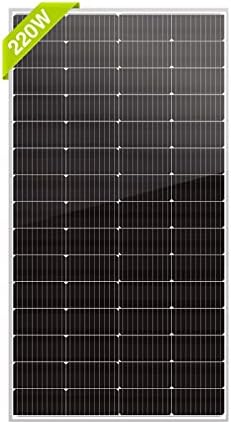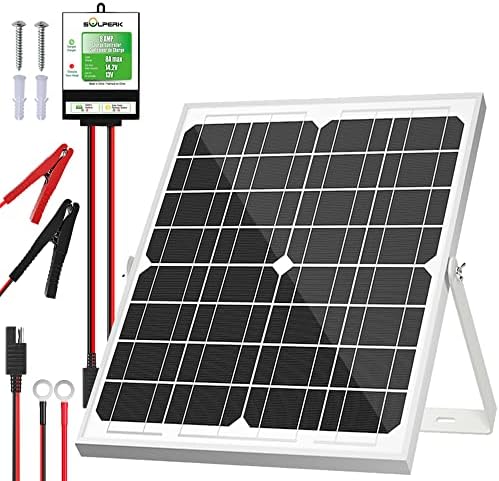# Going Green: The Environmental Impact of Home Solar Systems
Picture this: the sun gently rising over the horizon, casting a golden glow on the roof of your cozy, self-sufficient home. Solar panels glistening, they soak up sunbeams while you sip your morning coffee, knowing that today’s energy is drawn straight from the sky. This peaceful symphony of renewable energy isn’t just a dream; it’s a reality made possible through home solar systems. As we dive into the shimmering world of solar energy, let’s explore how these systems not only decrease your carbon footprint but also pave the way to a brighter, greener future for our planet.
## The Changing Face of Energy
For decades, our dependence on fossil fuels has dominated the energy landscape, contributing significantly to pollution and climate change. However, a seismic shift is occurring as individuals embrace solar power not just for cost savings, but out of responsibility toward our planet. The U.S. solar market is booming, reflecting a growing awareness of sustainability and environmental stewardship.
As more homeowners opt for solar, many question the real environmental impact of this technology. Can solar systems truly make a difference? Spoiler alert: Absolutely! From reducing greenhouse gas emissions to conserving water, the positive impact of home solar systems on the environment is profound.
## The Environmental Benefits of Solar Energy
### 1. Reduction in Greenhouse Gas Emissions
Solar energy is a clean, renewable resource. Unlike fossil fuels, which release harmful greenhouse gases when burned, solar panels convert sunlight directly into electricity without producing air pollutants. By adopting solar, households can significantly reduce their carbon footprint, contributing to cleaner air and a healthier planet.
According to the U.S. Energy Information Administration, a typical solar panel system can offset approximately 100 tons of carbon dioxide over its lifetime. To put that in perspective, that’s equivalent to planting over 2,500 trees. Given the pressing need to combat climate change, making the switch to solar is a step in the right direction for any eco-conscious homeowner.
### 2. Conservation of Water
Water scarcity is an increasingly pressing concern as populations grow and climates change. Traditional energy sources require vast amounts of water for extraction, cooling, and processing. In stark contrast, solar power generation uses virtually no water. This means less strain on our already overstressed water resources.
By installing solar panels, homeowners join the fight against water scarcity, supporting a more sustainable energy framework that doesn’t rely on dwindling water supplies. Imagine a world where solar farms and rooftops collectively save billions of gallons of water each year—this vision is becoming a reality.
### 3. Decreased Air Pollution
Air pollution remains a significant public health issue and a primary contributor to environmental degradation. Fossil fuel combustion creates smog, respiratory diseases, and a myriad of other health problems. By choosing solar energy, we actively help reduce air pollutants such as sulfur dioxide and nitrogen oxides.
The American Lung Association states that transitioning to solar energy could prevent up to 3,000 premature deaths annually in the United States. By embracing solar, communities can enjoy cleaner air and a healthier, happier populace.
### 4. Sustainable Job Creation
The solar industry doesn’t only contribute positively to the environment; it also fuels economic growth. The sector has experienced exponential job growth over the past decade. According to the Solar Foundation’s National Solar Jobs Census, the solar industry employs over 250,000 workers, a number that’s expected to keep growing.
By investing in home solar systems, homeowners play a part in the larger movement that supports green jobs and sustainable economic growth. Local solar installation companies thrive, fostering community development and resilience as we transition toward renewable energy sources.
## Choosing the Right Solar System
### 1. Assess Your Home’s Energy Needs
Before diving into installation, assess how much energy your household typically consumes. Understanding your electric bill over the past year as well as peak energy usage can help tailor a solar system that is right for you. A system that fits just right can maximize your energy independence and cost savings.
### 2. Choose Quality Panels
Not all solar panels are created equal. Research different brands to find panels that are efficient, durable, and come with solid warranties. Higher-quality panels may have a higher upfront cost, but they often pay off in the long run through improved performance and longevity.
### 3. Consider Your Roof
Orientation, pitch, and shading can significantly affect the efficiency of solar panels. Ideally, south-facing roofs receive the most sunlight. Be sure to evaluate your roof’s condition and make any necessary repairs before installation.
### 4. Explore Incentives
Various local, state, and federal incentives exist to help offset the cost of solar energy systems. Check if tax credits, rebates, or grants are available in your area. These incentives can significantly reduce upfront costs, making the transition to solar even more appealing.
## Pro Tips for Going Green with Solar
1. **Start Small**: If a full solar system feels overwhelming, consider starting with a smaller system or even solar-powered appliances. Gradually expanding your solar capacity can help ease the investment while offering immediate benefits.
2. **Monitor Your Energy Production**: Many solar systems come equipped with monitoring tools that allow homeowners to track energy production and usage. Keeping an eye on these metrics not only helps assess savings but can also alert you to any performance issues.
3. **Practice Energy Efficiency**: Although a solar system is a powerful tool, it’s essential to couple it with energy-efficient practices. Implementing smart home technologies and energy-efficient appliances can decrease your overall energy consumption.
4. **Engage Your Community**: Share your solar journey with neighbors and family. Engaging others in conversations about renewable energy can help inspire collective action, leading to larger community solar projects or initiatives.
5. **Stay Informed**: The solar industry is evolving quickly. Stay updated on the latest technologies, best practices, and incentives that can impact your solar lifestyle. Knowledge is power, and being informed means making smarter decisions.
## The Path Forward
Embracing solar energy is more than just an investment in your home; it’s a commitment to fostering a healthier planet. As households switch to solar power, we move toward a brighter, more sustainable future. The transition to solar energy embodies hope, demonstrating that collective action can lead to monumental change.
Let’s face it: energy procurement has evolved—the era of passive consumption is coming to an end. The future belongs to those daring enough to harness the sun’s power. So why not take a leap, go green, and ensure generations to come enjoy the earth’s bounty?
In your journey to harness solar energy, remember: you’re not just investing in a system; you’re investing in the planet. Together, we can illuminate the path to sustainability, blending innovation with nature’s brilliance to render our world more vibrant for all. Here’s to a future where the sun is our ally, and clean energy is the norm. Let’s go green and create a lasting legacy for our planet!



